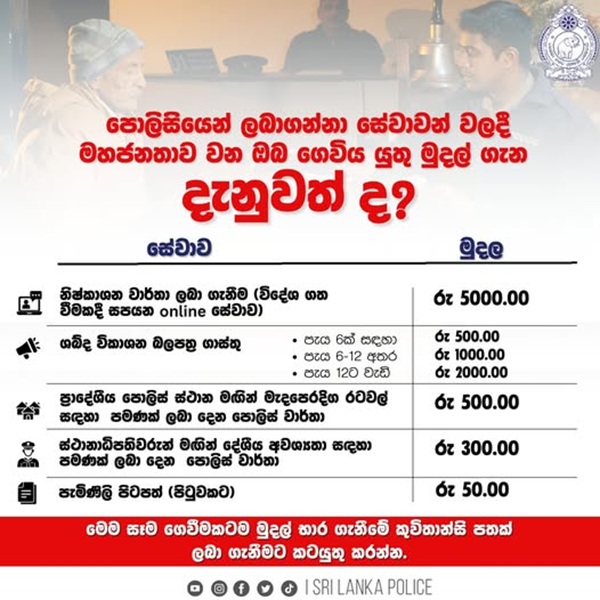September 11, Colombo (LNW): The Sri Lanka Police has officially introduced a new schedule of service fees applicable to a range of public services, urging citizens to ensure transparency by requesting official receipts for all transactions.
As part of ongoing efforts to streamline administrative procedures and formalise revenue collection, the department has set fixed charges for various commonly accessed services. These include both routine administrative processes and services often requested for international travel or legal purposes.
The updated fees are as follows:
* Police Clearance Reports (typically required for visa applications, overseas employment, and other international documentation): Rs. 5,000
* Broadcast Permits (often sought for events, public announcements, or temporary sound systems):
– Up to 6 hours – Rs. 500
– 6 to 12 hours – Rs. 1,000
– More than 12 hours – Rs. 2,000
* Police Reports issued by divisional police stations specifically for use in Middle Eastern countries: Rs. 500
* Domestic Police Reports issued by the local Officer-in-Charge (OIC) for purposes such as proof of residence or local verifications: Rs. 300
* Copies of Complaints, often requested for legal or personal documentation: Rs. 50 per copy
The police emphasised that all payments must be accompanied by the issuance of a formal receipt, and members of the public are strongly encouraged to report any irregularities or unauthorised charges.

